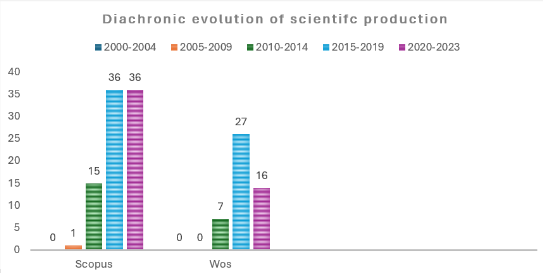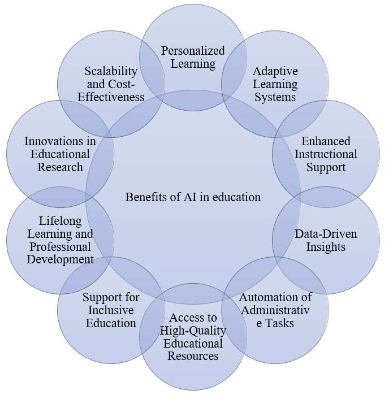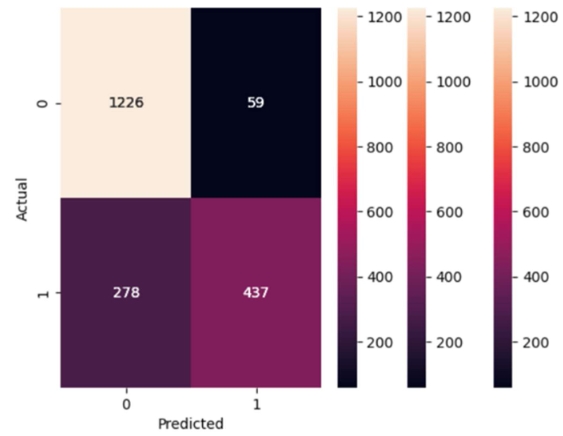Challenges and prospects of educational supervision in Onitsha education zone: Identifying problems, causes, and solutions for quality education
Abstract
This study examined the challenges and prospects of educational supervision in the Onitsha Education Zone, Anambra State, Nigeria. It aims to identify key problems, underlying causes, and viable solutions to enhance supervision effectiveness and improve the quality of education. The study used a descriptive survey design to understand opinions in Onitsha Education Zone, Anambra State. It involved 290 teachers and 10 principals from 10 secondary schools, selected randomly. Data was collected via a validated questionnaire on educational supervision. Analysis was done using mean and standard deviation, with a 2.50 acceptance threshold. Findings reveal significant challenges including bribery, corruption, inadequate funding, poor road conditions, and staffing issues. Positive prospects identified include enhanced standardization, efficiency, and reduction of malpractices. Key causes of these challenges are political instability, frequent policy changes, poor teacher remuneration, and lack of supervisory resources. The study recommends increased government funding, improved infrastructure, skilled staffing, and robust stakeholder involvement to enhance educational supervision and ensure quality education.
References
[1]Mohzana M, Arifin M, Pranawukir I, et al. Quality Assurance System in Improving the Quality of Education in Schools. Mudir: Jurnal Manajemen Pendidikan. 2024; 6(1).
[2]Akhmedov BA, Makhmudova DM, Akhmedjonov DG. Using the Socrates Method in Improving the Quality of Education in Pedagogical Universities. Sciental Journal of Education Humanities and Social Sciences. 2024; 2(1): 16–24. doi: 10.62536/sjehss.v2i1.8
[3]Podder SK, Karuppiah M, Thomas B, et al. Research initiative on sustainable education system: Model of balancing green computing and ict in quality education. In: 2022 Interdisciplinary Research in Technology and Management (IRTM). IEEE; 2022. pp. 1–5.
[4]Roopa D, Prabha R, Senthil GA. Revolutionizing education system with interactive augmented reality for quality education. Materials Today: Proceedings. 2021; 46: 3860–3863. doi: 10.1016/j.matpr.2021.02.294
[5]Flores-Vivar JM, García-Peñalvo FJ. Reflections on the ethics, potential, and challenges of artificial intelligence in the framework of quality education (SDG4). Comunicar. 2023; 31(74): 37–47. doi: 10.3916/c74-2023-03
[6]Jamali SM, Ale Ebrahim N, Jamali F. The role of STEM Education in improving the quality of education: a bibliometric study. International Journal of Technology and Design Education. 2023; 33(3): 819–840. doi: 10.1007/s10798-022-09762-1
[7]Cormier D, Pandey T. Semiotic Analysis of a Foundational Textbook Used Widely Across Educational Supervision. Journal of Educational Supervision. 2021; 4(2): 101–132. doi: 10.31045/jes.4.2.6
[8]Nasution I, Ajrina N, Hananiyah A, et al. Supervision of Education in Improving the Quality of Education in Schools. Edumaspul: Jurnal Pendidikan. 2022; 6(2): 2301–2307. doi: 10.33487/edumaspul.v6i2.4350
[9]Alazzam NMA, Mohammad I. Challenges facing the educational supervision methods of the Ministry of Education in light of Saudi Vision 2030. Journal for Educators, Teachers and Trainers. 2022; 13(4). doi: 10.47750/jett.2022.13.04.050
[10]Lance T. Chasing Down the Educational Debt by Centering Race in Educational Supervision. Journal of Educational Supervision. 2021; 4(1): 7–17. doi: 10.31045/jes.4.1.2
[11]Teena W, Nuntee S, Inyai C. A Model for Supervision Management to Improve the Education by Using the Area as Base in Digital Era under Primary Educational Service Area in the Northeastern Region. International Education Studies. 2024; 17(2): 80–87. doi: 10.5539/ies.v17n2p80
[12]Saraya A, Mardhatillah A, Fitriani EN. Educational Supervision of The Efforts Made Madrasah Family in Mts Al-Ihsan in Increasing the Professionalism of Teachers Teacher Professionalism. Cendekia: Jurnal Pendidikan dan Pembelajaran. 2023; 17(1): 16–29.
[13]Siahaan A, Syukri M, Akmalia R. Educational supervision in the implementation of graduate quality-based management in the era of the COVID-19 pandemic. Journal of Positive School Psychology. 2022; 6(6): 1204–1212.
[14]Kancan OE, Altinay F, Altinay Z, et al. The Role of Supervisor to Develop Strategic Planning for the Future of Education. Journal of Chinese Human Resources Management. 2023; 14(3): 70–83. doi: 10.47297/wspchrmwsp2040-800506.20231403
[15]Al-Kiyumi A, Hammad W. Preparing Instructional Supervisors for Educational Change: Empirical Evidence from the Sultanate of Oman. SAGE Open. 2020; 10(2): 215824402093590. doi: 10.1177/2158244020935905
[16]Uçar R, Atalay Mazlum A. Beyond the Impasse: A Vicious Cycle in Educational Supervision. Anadolu Üniversitesi Eğitim Fakültesi Dergisi. 2024; 8(1): 356–375.
[17]Akar H, Şen D. Impact of internal migration movements on the schooling process in Turkey: Supervisors’ views. Education Policy Analysis Archives. 2017; 25: 13. doi: 10.14507/epaa.25.2693
[18]Teichmann FM, Sergi BS. Bribery and Corruption Today: Practices and Challenges. In: Compliance in Multinational Corporations. Emerald Publishing Limited; 2018. pp. 1–29.
[19]Liu C, Hua C, Chen J. Efficient supervision strategy for illegal dumping of construction and demolition waste: A networked game theory decision-making model. Waste Management & Research: The Journal for a Sustainable Circular Economy. 2022; 40(6): 754–764. doi: 10.1177/0734242x211032031
[20]Mudacumura GM. Accountability and transparency: Cornerstones of development and democratic governance. In: Challenges to democratic governance in developing countries. Cham: Springer International Publishing; 2013. pp. 37–55.
[21]Kristiansen S, Komiya K. The Effect of Transparency, Accountability and Leadership on The Effectiveness of Village Fund Management. Journal of Management. 2022; 1(1): 33–40.
[22]Wibisana AW. The Urgency of Preventive Supervision to Prevent Corruption in Indonesian State-Owned Enterprises. Beijing Law Review. 2023; 14(01): 28–60. doi: 10.4236/blr.2023.141002
[23]Graham FAUSTINA. Challenges of circuit supervisors in supervising underserved public schools in the Awutu Senya West District [PhD thesis]. University of Education, Winneba; 2022.
[24]Mustofa I, Trisnamansyah S, Mulyanto A, et al. The Influence of Academic Supervision Activities, School Culture, Infrastructure, on the Quality of Learning Processes and Outcomes at Madrasah Aliyah. Nidhomul Haq : Jurnal Manajemen Pendidikan Islam. 2021; 6(3): 727–736. doi: 10.31538/ndh.v6i3.2320
[25]Jacob ON, Jegede D, Musa A. Problems facing academic staff of Nigerian universities and the way forward. International Journal on Integrated Education. 2021; 4(1): 230–241.
[26]Lamidi ML, Afariogun AA. Imperatives of supervision in attaining quality assurance in Nigerian educational system. Journal of Contemporary Issues in Educational Planning and Administration. 2022; 5(2): 72–78.
[27]Hess D. The Management and Oversight of Human Rights Due Diligence. American Business Law Journal. 2021; 58(4): 751–798. doi: 10.1111/ablj.12197
[28]Anderson J. Governance, Leadership, Management, Organizational Structure, and Oversight Principles and Practices. Sustainably Improving Health Care. 2022. doi: 10.1201/9781846198250-8
[29]Nganchi KN, Charlotte MN. Effects of examination malpractices on students future, Case of higher technical teachers training college, Bambili-Bamenda. African Journal of Education and Practice. 2020; 6(5): 55–78.
[30]Avis E, Ferraz C, Finan F. Do Government Audits Reduce Corruption? Estimating the Impacts of Exposing Corrupt Politicians. Journal of Political Economy. 2018; 126(5): 1912–1964. doi: 10.1086/699209
[31]Adeoye MA. Effective School Supervision: Challenges and Prospects for Educational Supervision in Secondary Schools. Pakistan Journal of Educational Research and Evaluation (PJERE). 2023; 11(1).
[32]Kushwaha A. Supervising teaching practice: Role perceptions and challenges. Journal of Positive School Psychology. 2022; 6(11): 261–271.
[33]Achempim-Ansong G, Kwashie AA, Ansah Ofei A. Exploring the benefits and challenges of administrative clinical supervision in nursing and midwifery. Journal of Nursing Education and Practice. 2021; 12(1): 14. doi: 10.5430/jnep.v12n1p14
[34]Olujuwon T, Omiyale OP, Akintan A. Impact of work environment on secondary school’s teacher’s performance among secondary schools’ teachers in Satellite town, Lagos State, Nigeria. Education. 2021; 4(1): 279–288.
[35]Collins MD, Jackson CJ. A process model of self-regulation and leadership: How attentional resource capacity and negative emotions influence constructive and destructive leadership. The Leadership Quarterly. 2015; 26(3): 386–401. doi: 10.1016/j.leaqua.2015.02.005
[36]Christopher K. Barriers Life Skills Teachers Face When Accessing Professional Development [PhD thesis]. University of St. Thomas; 2023.
[37]Larsson P, Löwstedt J. Distributed school leadership: Making sense of the educational infrastructure. Educational Management Administration & Leadership. 2020; 51(1): 138–156. doi: 10.1177/1741143220973668
[38]Siswanto E, Hidayati D. Management Indicators of Good Infrastructure Facilities to Improve School Quality. International Journal of Educational Management and Innovation. 2020; 1(1): 69–81. doi: 10.12928/ijemi.v1i1.1516
[39]Niemi I. Optimising board oversight of compliance as a risk governance instrument. Journal of Risk Management in Financial Institutions. 2023; 16(3): 273–281. doi: 10.69554/ymje6410
Copyright (c) 2024 Ann Ngozi Ugobueze

This work is licensed under a Creative Commons Attribution 4.0 International License.









